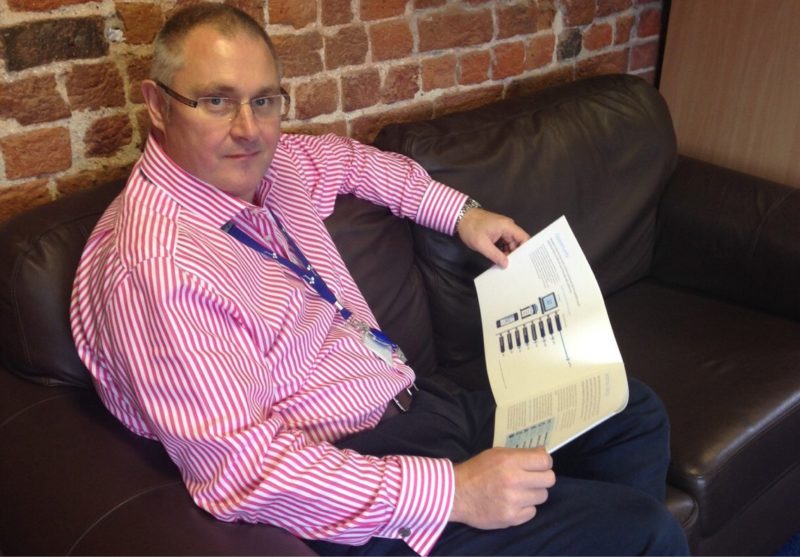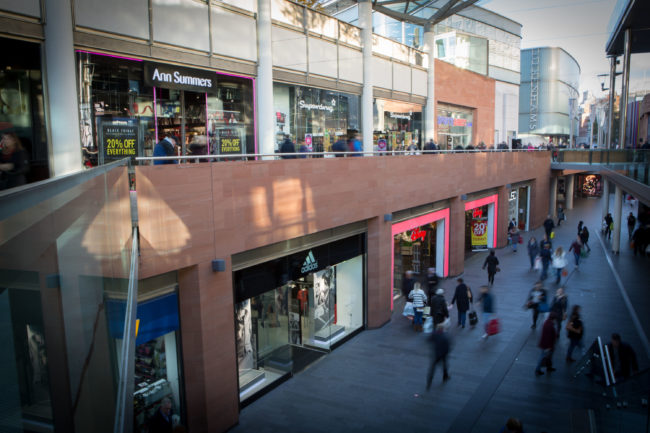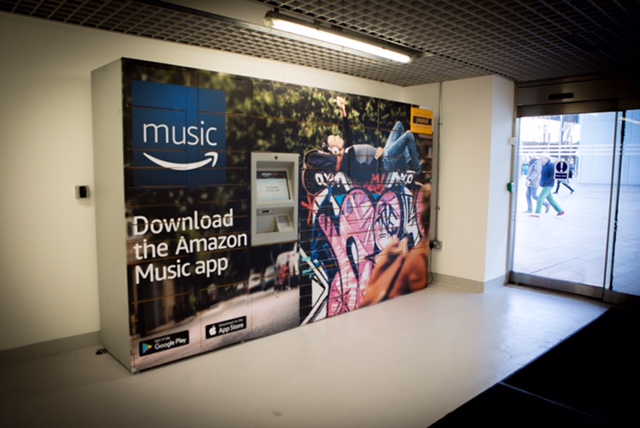Retail Store founder Ian Tomlinson says Liverpool’s best-known shopping areas such as Liverpool One, Church Street and Bold Street can thrive by embracing change. Tony McDonough reports.

Digital technology could transform the Liverpool city centre shopping experience within just a couple of years, a local retail technology expert claims.
High street retailers have come under pressure from online shopping in recent years but Retail Store founder and chief executive Ian Tomlinson insists the more savvy stores are seeing digital innovation as an opportunity rather than a threat.
Ian started his Knowsley-based firm, first known as Cybertill, 15 years ago and it was the first to introduce cloud technology to retailers internationally.
Changing landscape
He says Liverpool’s best-known shopping areas such as Liverpool One, Church Street and Bold Street can continue to thrive by embracing the huge changes.
Mobile-led, multi-channel and with an enhanced store experience are just a few of the ways they will adjust, he explained..
“While Liverpool was reinventing itself, so was the retail world and Liverpool One is a leading example of the new retail experience,” he said.
“It fuses together perfectly retail, digital and destination marketing.
“However our research has shown us, that as retailers invest more in technology and play catch up with the likes of China, Japan and the US, the face of Liverpool as a shopping destination could be very different in just a couple of years time.”
Back of a napkin
Created by Manchester-born Ian on the back of a napkin, Retail Store’s technology allows retailers to track and manage stock, sales and inventory through a wholly digital platform.
With the apparent threat to the high street posed by digital retailers and web-based platforms, Ian cites a shift in both culture and approach to this so-called “online ambush”.
“Industry buzz words like omni-channel exist for a reason,” added Ian. “We shop differently and we want different things from our retail environments.

“We no longer jump in our car or on the bus to get to the shops, buy our goods and return home.
“We dwell longer in evolving leisure-cum-shopping destinations – we desire the tangible experience of picking up the goods after we have researched deals, details and discounts online.
“And more often than not, we still want the social aspect of shopping, whether that be meeting with friends to dine, drink and shop, or sharing our hauls on social media.”
Seamless experience
Ian forecasts that the consumer will not only desire a quicker, more efficient way to shop with the increased used of mobile technology as a form of payment and to house loyalty apps, but screenless ATM’s could also be a nuance quickly adopted by destinations like Liverpool One to create a seamlessly integrated experience.
“Iris and retina scanners as well as fingerprint technology are already being trailed as are pre-order app drinks at Starbucks,” he said.
“Robots are serving customers at Pizza Hut in Tokyo and there’s a zero clicks app for Dominoes being tested.

“All of this helps to reduce the so-called ‘friction’ with customers and enhances the experience. It’s not outlandish to say that we could see versions of these kinds of technology in Liverpool within a matter of years.”
With digital forward stores like Argos in Liverpool One, the influx of “show rooming” will increase, says Ian, with customers being able to choose from extended digital aisles offering a wider range of products, colours and styles, for in-store or home delivery.
“The interesting point is that now, with advances in technology happening every day, the speed at which the shift change will happen will be monumentally quick, and I for one am excited,” he added.
